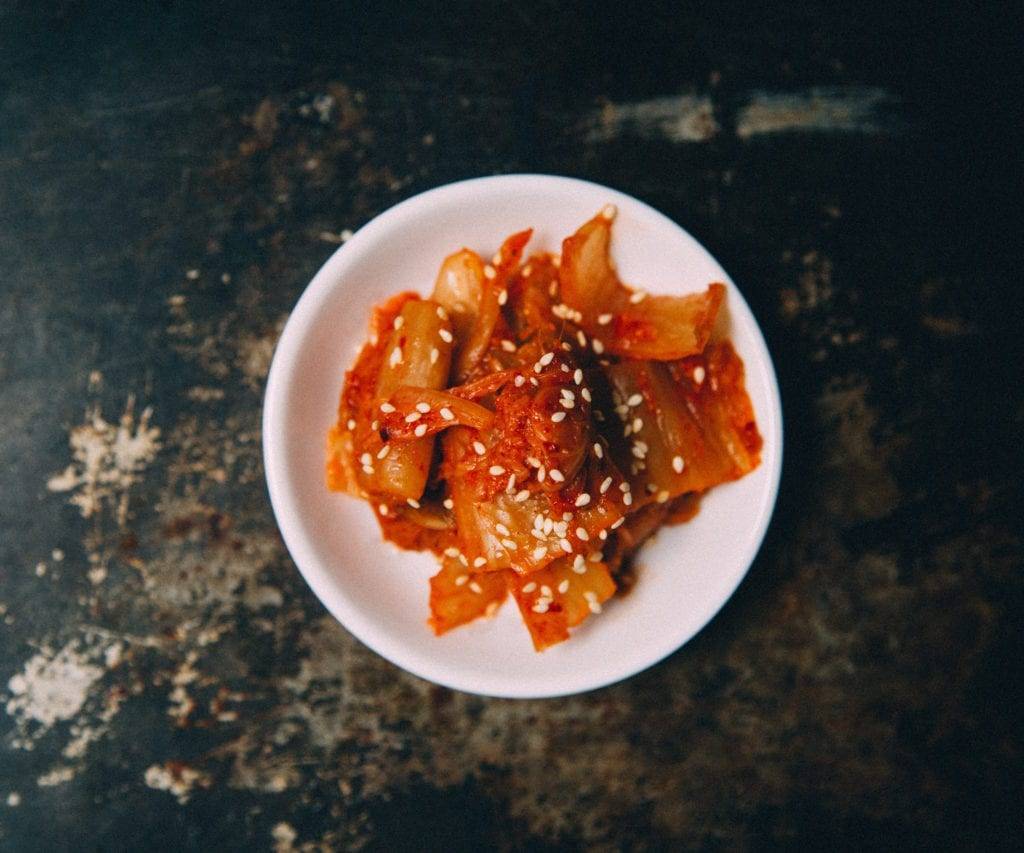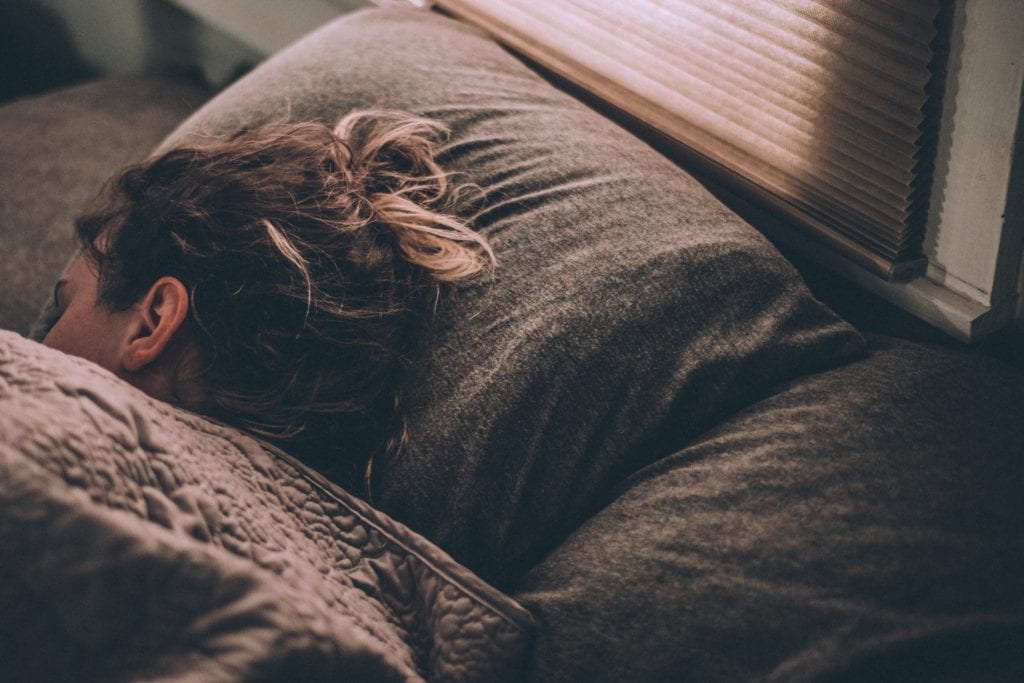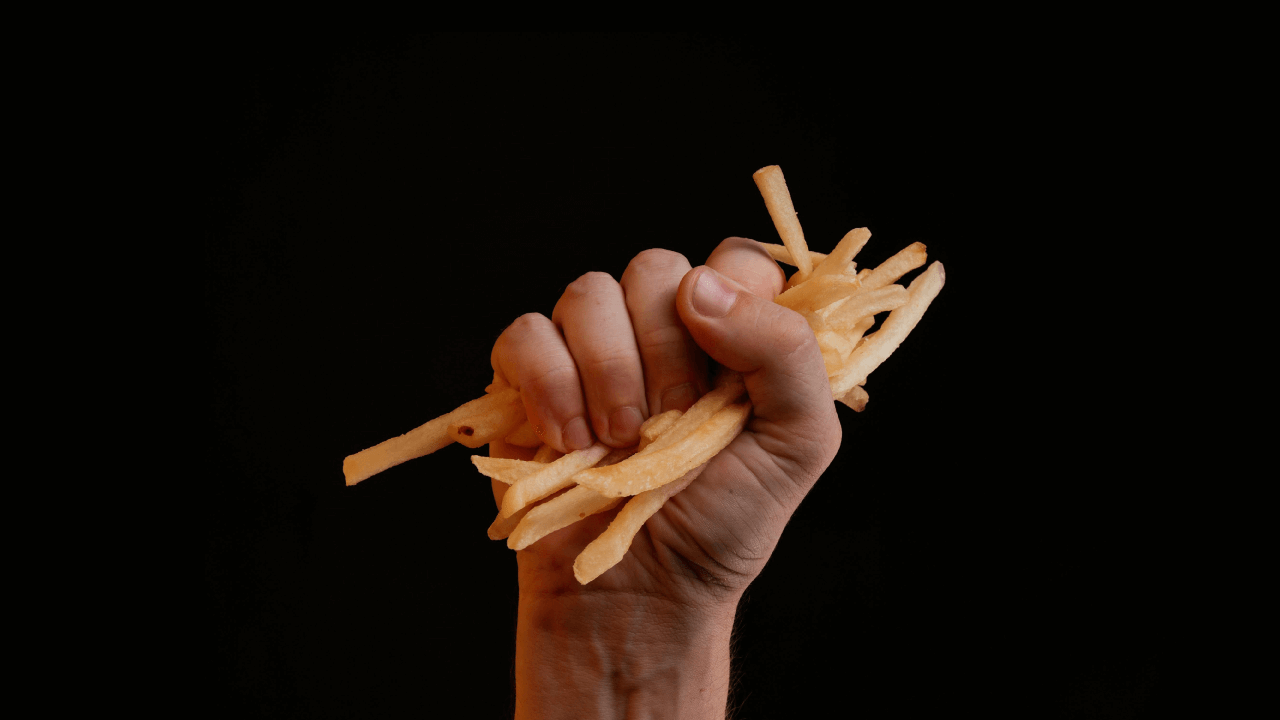We all have food cravings. And most likely we all get upset with ourselves for not having more discipline when we give into them. We think to ourselves, “If only I were stronger” or we ask ourselves, “Why can’t I control myself?” Well, guess what? You can stop beating yourself up because battling food cravings has nothing to do with developing greater discipline!
But instead of just learning tips on how to reduce your food cravings, it’s important to understand why you are having these cravings in order to actually overcome them. So before we dive into how to control them (without more discipline), let’s find out what is actually causing you to experience your cravings.
Reason #1: You have poor gut health.
Did you know your gut controls your food cravings, not your lack of discipline? Your food cravings are shaped by the bacteria in your gut. Your gut bacteria plays a huge role in why you have cravings. You have good gut bacteria and bad gut bacteria; the one that is predominant in your gut depends on the foods you feed your body as well as external sources you are regularly exposed to.
Whether it’s good or bad gut bacteria, it needs more of that same bacteria in order to continue growing and thriving. Bad gut bacteria grows and thrives on processed, high-sodium, high-sugar, high-carbohydrate foods. When your bad gut bacteria takes over, it sends messages to your brain demanding more of these foods in order to stay alive, leading you to experience heightened food cravings.
Reason #2: Your hormones are out of balance.
You don’t always feel hungry because you are actually hungry. When you have lowered or heightened levels of certain hormones, it triggers your brain to falsely believe it needs more food. So if you keep eating and eating and never feel full or are always searching for that extra something to satisfy you, this is a clear sign that your hormones are out of balance.
Two hormones that play a large role in regulating your hunger and appetite are leptin (the “I’m full” hormone) and ghrelin (the “I’m hungry” hormone). When you have low levels of leptin, triggering you to stop eating, and high levels of ghrelin, triggering you to keep eating, your food cravings will be out of control!
Dopamine and serotonin are two other hormones that greatly influence your food cravings. Dopamine and serotonin regulate your mood and happiness levels, and when these hormones are out of balance, you may never feel happy and satisfied with your meals, or they may trigger you to emotionally crave foods.
So now that you know what may be causing your food cravings, what can you do about it?
1. Take control of your gut health!
Your food cravings heavily depend on the quality of your gut health, and the quality of your gut heavily depends on the food you feed it. You want to feed and grow the good bacteria and kill off the bad. So how do you do that?
Avoid foods that destroy your gut health! These include foods that are heavily processed and high in sodium and sugar or converted into sugar easily. Foods that contain gluten, dairy or artificial sweeteners or additives can also wreak havoc on your gut. You also want to avoid drinking unfiltered tap water, control your carbohydrate intake, limit your exposure to antibiotics (especially in your foods!) and restrict your alcohol intake.
To feed and grow the good bacteria in your gut, you want to include more prebiotics, probiotics and whole foods in your diet.
Some prebiotic-rich foods to include:
- – Chicory root
- – Raw garlic
- – Raw leeks
- – Raw and cooked onions
- – Jicama
- – Green bananas
- – Flaxseed
- – Raw cacao powder
- – Seaweed
- – Raw or cooked radishes
- – Shredded coconut and coconut flour
- – Sweet potatoes
- – Hemp seeds
- – Cabbage
- – Berries

Probiotic-rich foods include many fermented foods, such as:
- – Kimchi
- – Kombucha
- – Miso
- – Tempeh
- – Apple cider vinegar
- – Sauerkraut (not canned—the raw, unpasteurized kind from the refrigerated section of the grocery store)
- – Yogurt
You can also supplement pre- and probiotics. Because there are countless different strands of bacteria in your gut and it’s impossible to know which strands your body needs, continue to alternate the brand of supplements you use to increase the diversity of good bacteria in your gut.
And lastly, you want to eat as many whole foods as possible. These are foods that contain only one ingredient and have not been processed. This means eating chicken and not chicken sausage, using natural coconut oil and not chemically altered vegetable oils, and avoiding packaged foods as much as possible. Go straight to the produce aisle, where foods don’t need ingredient lists! Including bone broth in your diet has also shown to be extremely healing for the gut.
Aside from food, a very important and little-known cause of poor gut health is over-sanitizing, especially with hand sanitizer, and using harsh household cleaners, laundry detergent and dish soap.
2. Stop restricting your calories and over-exercising.
There is a huge difference between controlling your calories and restricting your calories. When you eat way less calories than your body needs, you throw your hormones way out of whack!
Your hormones may be out of balance, causing you to experience food cravings, due to eating less and exercising more. When you focus on eating as few calories as possible at each meal and working out longer and harder each day, come nighttime, your hunger and cravings will be unmanageable! More discipline won’t help because your body is not only starved for food but you have also completely thrown your hormones out of whack.
Your hunger hormones are extremely sensitive to calorie restriction, so it’s important to understand the difference between controlling your calories and over-restricting your calories. Rather than focusing on eating as few calories as possible at each meal, you need to focus on eating balanced meals. Combine protein, fat, fiber and greens at each meal to naturally balance your hunger hormones and keep you full and satisfied for hours. Consuming balanced meals will stop you from always thinking about food and kill your food cravings. Most likely, you will end up eating less throughout your week if you feed yourself balanced meals each day instead of restricting your calories just to give into your food cravings later.
And what about over-exercising? Hitting the gym for hours a day puts your body into a chronic state of stress. High levels of stress cause your body to release your fight-or-flight hormone, cortisol, causing a domino effect of reactions in your body, ultimately affecting the levels of your hunger hormones. When you fall into vicious cycle of giving into your food cravings and hitting the gym longer the next day to work it off, this is just causing you to crave more and more.

3. Get more sleep.
Sleep deprivation is another big reason why you might experience food cravings. Did you know people who are sleep-deprived have been shown to eat 300 more calories a day than those who get enough sleep? An extra 300 calories each day can lead to about 22 pounds of weight gain per year!
Lack of sleep alters the timing and release of your appetite-controlling hormones, releasing larger amounts of ghrelin, your hunger hormone, and less leptin, your “I’m full” hormone. Even worse, this imbalance of hormones not only makes you feel hungrier, it also stops you from realizing you are full, leading you to continue to eat.
New research shows that sleep deprivation causes the same release of chemicals in your brain as marijuana, causing you to experience the munchies. Lack of sleep also triggers your late-night food cravings by increasing the activity of the emotional center of your brain, promoting heightened emotions and irrational thinking. With both of these effects happening to your brain, you are much more likely to lack the willpower to say “no” to your late-night cravings.
The next time you are short on sleep, observe your hunger levels and food cravings. Most likely both will be heightened. Remind yourself they are not true hunger signals. Concentrate on eating balanced meals with protein, fat, fiber and greens throughout your day and make going to sleep earlier a priority to get back on track and stop your cravings.
4. Stop eating around the clock.
Eating from the second you wake up to the second you fall asleep causes you to crave more and more food. Eating a big meal, a snack an hour later and another big meal an hour after that is horrible for your hunger hormones. Eating around the clock heightens your food cravings and affects not only your gut health but also your hormone levels. You are feeding the bad bacteria in your gut, which send a signal to your brain to eat more food to keep them alive. Eating around the clock also causes your hunger hormones to become numb. They stop signaling properly and prevent you from actually feeling full and satisfied.
Give yourself a break from eating. Simply close the kitchen a little earlier at night or hold off your breakfast for an hour in the morning. This doesn’t mean you need to start intermittent fasting, but waiting 12 hours between dinner and breakfast can be great for rebalancing your hunger hormones and cutting your food cravings.
Instead of just following tips on how to reduce your food cravings, now you understand exactly what might be causing them. You can now take real action to overcome them, rather than just quick fixes!
5. Do more of what makes you happy!
Dopamine and serotonin regulate your mood and happiness levels and when you do more of what makes you happy, you boost the production of these two hormones. Your brain will feel satisfied without having to turn to food to provide you with the same feelings of satisfaction.
Doing more of what makes you happy will also help you deal with stress more effectively. Stress depletes dopamine from the brain and also has a negative effect on your mood and sleeping patterns, leading to more stress which lowers both dopamine and serotonin levels.
To successfully overcome your late night food cravings, ask yourself what makes you happy? It can be something as small as quietly enjoying a cup of coffee or relaxing while watching your favorite T.V. show. Make a list of all the things that make you happy, followed by a list of all the things you do each day. Compare the two lists and see where you can make changes in your life. Make it a priority to regularly include more of what makes you happy into your life. You will reduce your stress, naturally balance your hormone levels and conquer those food cravings!


